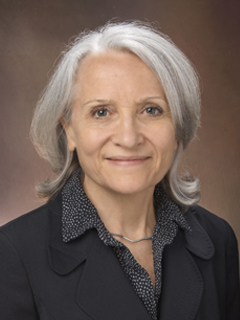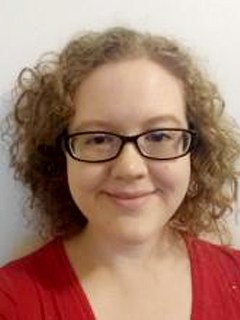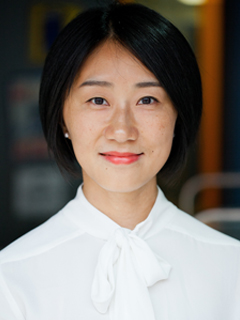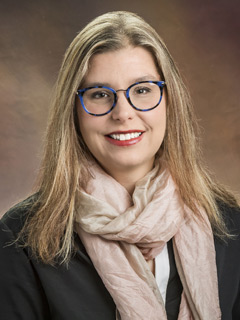HOW CAN WE HELP YOU? Call 1-800-TRY-CHOP
In This Section
Women in STEM Part One: Stories of Science and Success
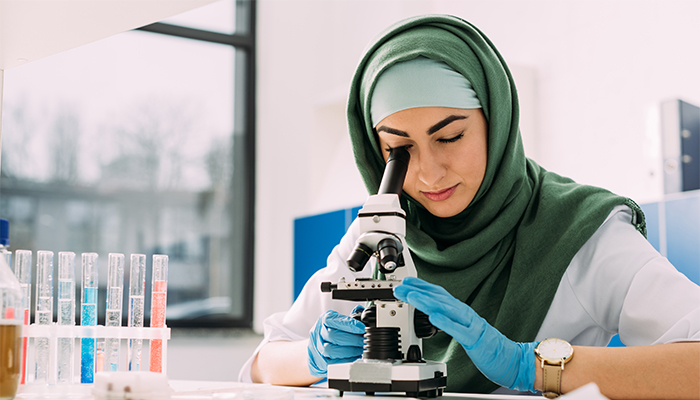
CHOP is home to a remarkable number of women in STEM who contribute every day to saving children’s lives.
A century ago in the United States, women comprised less than 5% of all physicians. And while that percentage rose to approximately 37% in 2022, numbers fail to capture the immense impact and achievements women have collectively made in the medical field. At Children's Hospital of Philadelphia Research Institute, a great number of scientists, statisticians, engineers, counselors, clinicians, program directors, and more contribute to the ever-expanding wealth of knowledge about children's health.
Coming from diverse backgrounds and walks of life, these women wield expertise in the development of novel cancer treatments, genetic counseling for rare disease, data analysis, computer programming, and much more. Alongside passion for their specialties and persistence in their work, these women also have a story to tell.
In celebration of Women's History Month, we asked each leader of our Centers of Emphasis (COE) to nominate one woman in STEM from their COE. COE's are transdisciplinary groups that strengthen CHOP's scientific capacity by promoting collaboration and integration. In a two-part series that echoes our Women in STEM galleries of years past, these nominees share either an inspiring story from their career or words of advice for aspiring scientists. We invite you to read their words below, and stay tuned for part two of this Women in STEM series.
Arcus Library, Education, and Data Services Director
Department of Biomedical and Health Informatics
I became passionate about data, programming, and computers in the late 1980s when informatics started being used in most places (or at least in France, where I lived at that time). I decided to go back to school to get a master's degree in medical engineering and instrumentation. At that time, there were few women who enrolled in this curriculum. For 18 years, I applied my skills within the pharmaceutical industry.
I started at CHOP in 2011 to lead the deployment of the REDCap application and manage the Clinical Reporting Unit. I am now part of the Arcus team, ensuring that the services provided to researchers allow them to conduct innovative studies. It is very encouraging to work in STEM, particularly with women on the Arcus team who are so talented and committed to saving children's lives.
My advice for women who wish to succeed in STEM is to believe in yourself, to be highly collaborative with colleagues, and to persevere, especially at times when nothing seems to be working or when end users/customers are not completely satisfied. The field affords the opportunity for continuous personal and professional development which, for me, makes it a particularly rewarding environment in which to be engaged.
Data Analyst
One of the best memories of my career is learning I had been hired for my dream job — getting to work with data, in autism research, at CHOP of all places, almost sounded too good to be true! A couple years in with this role, it has definitely lived up to expectations. I enjoy spending my day alternating between writing code and working collaboratively with research study teams to meet their data management needs. It is an honor, especially as an autistic adult, to contribute to research that seeks to understand autistic kids and enhance their lived experience.
I am blessed to work with a fantastic team of people who are passionate about pursuing that goal together and enthusiastic about sharing the knowledge they have with anyone who wants to learn.
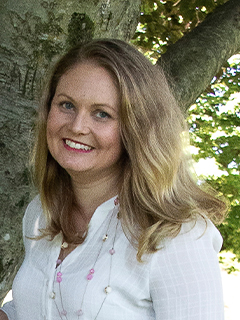
Margaret Harr
Margaret Harr
Genetic Counseling Program Manager and Genetic Counseling Lead
People think telling patients about a genetic diagnosis would be a sad or negative experience, but sometimes it is a relief or even a celebration. The most rewarding cases are ones where I get to work with a family over several years during their search for a diagnosis. Patients who are on a long diagnostic odyssey often end up in one of our research studies, looking for someone to take their concerns seriously or tell them that the search is not over and that there is more we can do.
It is always rewarding to eventually be able to tell a family the name of a syndrome or gene and connect them to other families with similar experiences. I have been able to connect families to researchers all over the world and to other families coping with the same rare diagnosis. It is a moment when you get to say, "You are not alone." It means so much to the families and is why we do what we do.
My advice for women is to always remember that you deserve to be there. When you walk into the room, take a seat front and center, speak up, and be brave! When you believe you belong, others will too.
Assistant Professor of Biostatistics, Department of Pediatrics
"The water flows without contention but vies for being endless and unceasing."
This old Chinese idiom always has been my motto for work and life. Science has no end. It's never about competition. Instead, persistence is the key to success. Keep doing things that you are passionate about and that make you feel happy. Find friends, collaborators, and mentors along the way. Strive to be persistent and focused in pursuing your goals without being distracted, just as the water in a stream flows smoothly and endlessly without interruption.
Assistant Professor of Pediatrics, Division of Endocrinology and Diabetes
Center for Childhood Cancer Research
I used to dream about running my research lab out of my garage, that I would have a billion dollars and be able to ask all the questions I wanted answers to, even if the National Institutes of Health didn't want to fund them.
And that is the advice I shared with my first graduate student, encouraging her to find her passion and pursue the dream that she "would want to run out of her garage." I never dreamt she would take it literally, but she actually built her business literally in her garage! I have never been more proud of anyone, and we both know she is doing exactly what she is supposed to be doing because she followed her passion.
Find what you are passionate about, and don't be afraid to follow that passion, even it is not what others expect or want of you. Life is too short to pursue someone else's expectations — fulfill your own expectations.
I firmly believe that as women in STEM we can have it all; we just may not be able to have all of it all the time. We need to prioritize and define what our individual "all" is and base it on our own expectations. Do not compare yourself to every person around you; compare yourself to the person you were yesterday. If you see growth, then you are on the right path.
